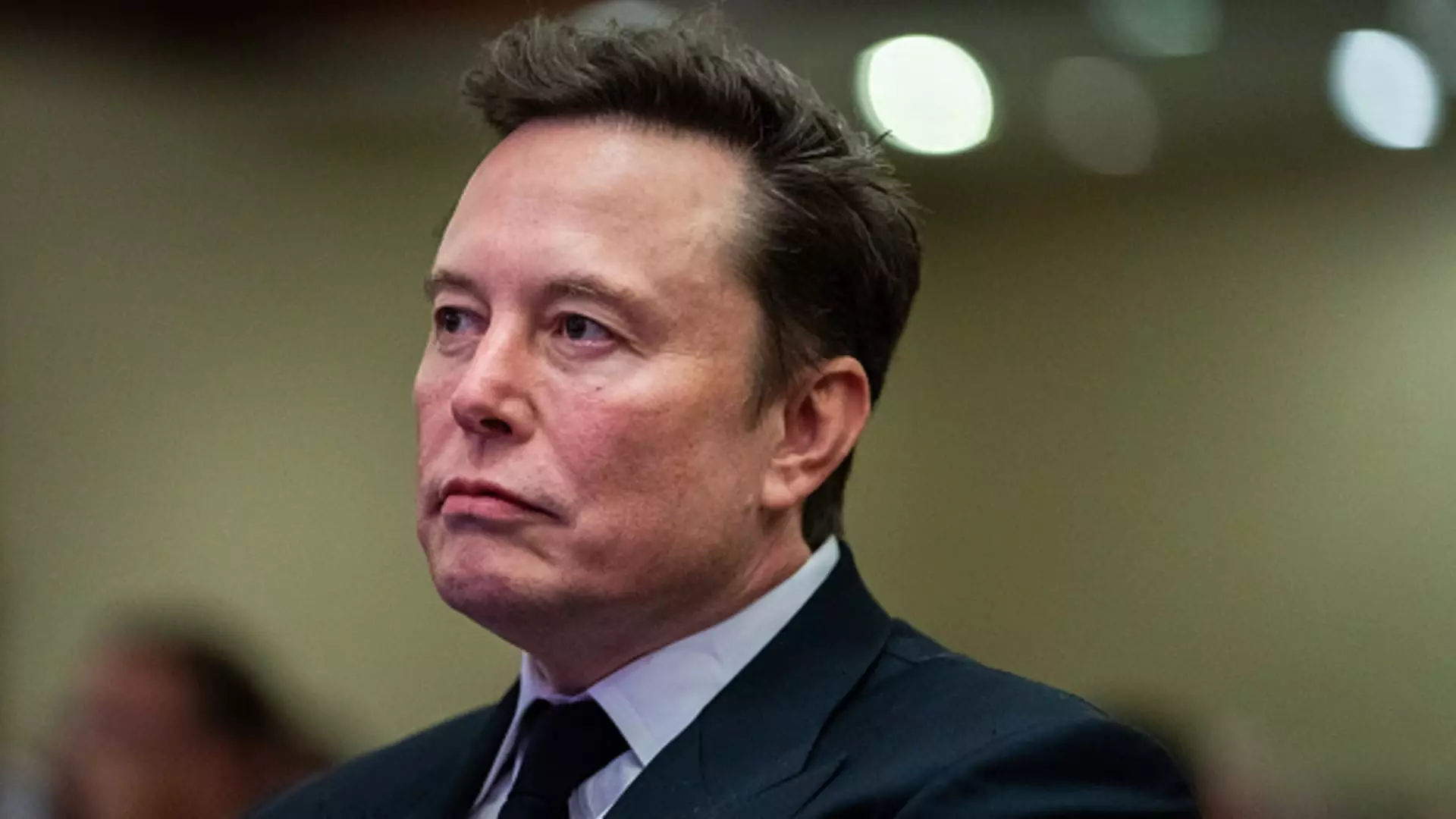Elon Musk’s turbulent relationship with the U.S. Securities and Exchange Commission (SEC) has once again come to the forefront, igniting discussions about accountability, transparency, and the often-blurred lines of corporate governance. Recently, Musk took to social media to reveal that he is facing a “settlement demand” from the SEC, involving a scrutiny of his financial dealings concerning Twitter shares during a tumultuous period in 2022. This revelation not only emphasizes Musk’s controversial dealings but also raises questions about regulatory practices, the power dynamics in business, and the implications for investors.
The Settlement Demand: Context and Implications
Musk’s disclosure was made public through a social media post where he shared a letter from his attorney, Alex Spiro. The letter indicated that the SEC had pressured Musk into agreeing to a settlement that would include a fine, with a stern ultimatum of 48 hours to comply or face legal charges on what the agency termed the “Certain Purchases, Sales and Disclosures of Twitter Shares.” This aggressive stance by the SEC illustrates a key tension between high-profile entrepreneurs and regulatory bodies. The rapid-fire nature of the demand hints at the SEC’s potential urgency to address perceived misconduct amidst fears of market manipulation, particularly in regards to Musk’s leveraged buyout of Twitter, now rebranded as X.
The significance of this settlement demand extends beyond Musk. It acts as a reminder of the regulatory challenges that business leaders encounter, especially those whose actions can significantly sway market movements. In this milieu, the stakes are extraordinarily high not just for Musk, but for investors and the general public who rely on the integrity of financial disclosures in order to make informed investment choices.
Musk’s reaction to the SEC’s demands has showcased his characteristic irreverence. With a sardonic tone, he posted, “Oh Gary, how could you do this to me?” along with a humorous emoji, followed by more comedic content portraying SEC Chair Gary Gensler as a snail-like figure. This approach provides insight into Musk’s persona—not just as an innovator and tech mogul, but as a figure who often leverages social media for personal branding and public relations. His use of humor and satire reflects a strategy to diminish the gravity of the situation and maintain a connection with his followers by framing the SEC as an antagonist in a larger narrative.
While such antics might appeal to his base, they risk undermining the seriousness of the allegations against him. Public figures in such positions of power must balance their individual personalities with the responsibilities and ethical considerations tied to their business actions. Musk’s tendency to sidestep formalities through humor complicates perceptions of accountability in corporate leadership and places immense pressure on regulatory bodies to assert authority.
The SEC’s continued investigation and Musk’s contention of harassment over an extended period—referred to by his lawyer as “more than six years”—raises important questions about the lines between necessary regulation and excessive scrutiny. While regulatory oversight plays a critical role in maintaining market integrity and protecting investors, persistent scrutiny could also challenge the operational environment for dynamic business leaders like Musk. The situation becomes particularly convoluted with the reopening of investigations into Musk’s ventures, such as Neuralink, which raises concerns about overreach in regulatory practices.
Moreover, the SEC’s actions—whether seen as vigilant oversight or as a personal vendetta—spark debates about the impact of politics on regulatory actions. Insights from sources familiar with the inquiry suggest that the agency offered Musk more than 48 hours to respond, implying that while urgency might be a concern, there’s also room for negotiation and understanding. This nuance points to an important delineation between regulatory efficiency and the perception of harassment.
A Mirror to Shareholder Rights and Responsibilities
At the core of the SEC’s investigation lies a separate civil lawsuit from the Oklahoma Firefighters Pension and Retirement System, claiming Musk concealed critical investment information that misled other shareholders and put them at a disadvantage. This development not only underscores the responsibilities of corporate leaders toward transparency but also elucidates the vulnerabilities within the investment frameworks that depend on complete candor in disclosures.
Musk’s previous legal entanglements, particularly the 2018 civil securities fraud case, highlight the cyclical nature of these allegations. While Musk may view governmental scrutiny through a lens of victimhood, the reality remains that the financial ecosystem relies on leaders who prioritize ethical practices to preserve trust among all stakeholders.
The ongoing saga of Elon Musk and the SEC represents a pivotal moment in the dialogue surrounding corporate governance, regulatory accountability, and the very essence of leadership in the 21st century. As the story unfolds, it rejuvenates calls for a balanced approach to regulation that upholds the integrity of financial markets while respecting the innovative spirit that drives much of today’s business landscape.


Leave a Reply